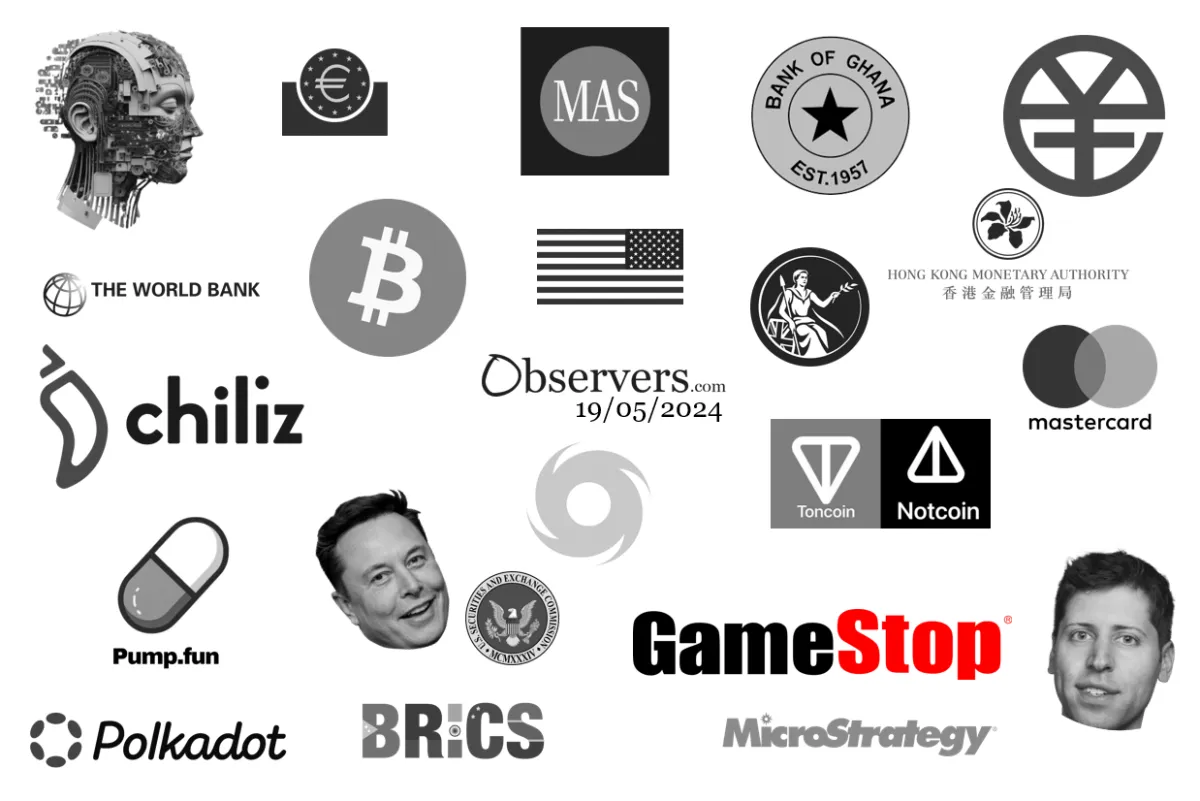
It was a big week for artificial intelligence, with Google and OpenAI both announcing updates regarding their language models. At its annual conference, Google revealed that in the coming months, most of its apps and services will be updated to include AI features. On the company's search engine, users can already access AI Overview, a feature powered by Google's LLM Gemini that summarizes queries using multiple sources.
OpenAI introduced GPT-4o. The "o" stands for omni and means that the model's novel version can handle voice, text, and video. The chatbot's new features allow it to be used almost as a personal assistant.
OpenAI's CEO, Sam Altman, is aware of the disturbance its AI model can cause to the economy and is planning to do something about it. During a podcast, the tech entrepreneur revealed his plans to make available a resource-based universal basic income system that, instead of money, distributes to everyone free access to powerful AI tools.
The titans of tech often need to show off their humanity or power. Elon Musk, once again, defied the SEC in the ongoing investigation into his purchase of Twitter in 2022. Given all the staggering evidence against him, it's likely not because he is right.
Like Google and OpenAI, which decided to announce AI updates in the same week, and Apple predicted to follow soon, institutions from all sectors also tend to move in hordes. Multiple traditional financial enterprises in the U.S. are gaining exposure to Bitcoin by buying spot BTC Exchange Traded Funds. The stocks of Michael Saylor's Microstrategy have gone up this week after it was announced that they are going to be indexed in the ACWI, an index closely monitored by several major ETFs that have nothing to do with crypto.
As for Microstrategy itself, in a somewhat counterintuitive idea, a Luxembourg-based platform, STOKR, is launching a real-world asset product based on the Bitcoin holding company's stock.
The demand for Bitcoin-based products has highlighted cryptocurrencies' potential. Everyone, except the United States government, sees it.
In trying to protect the dollar against the threat of a new international currency, the country put its dominant position in danger. Its geopolitical nemesis, Russia, and its ally Brazil are exploring a common currency for the BRICS to displace the dollar as the trading currency between the nine member countries of the block.
This blockchain backwardness of the U.S. might change if Congress votes for FIT21, a legal Act that might finally bring some legislative clarity to the cryptocurrency industry in the country by establishing aspects such as which state agencies are responsible for regulating and overseeing the market.
The U.S. is fighting blockchain-based innovation on multiple fronts and far beyond its borders. The Netherlands sentenced Tornado Cash co-founder Alexey Pertsev for creating and maintaining the code of the crypto mixer.
In a more widespread crackdown, Nigeria continues its cryptic handling of cryptocurrencies. Meanwhile, the neighboring Ghana is collaborating with the Monetary Authority of Singapore in an interesting project involving CBDC, stablecoins and programmable money. Also in our weekly roundup of CBDC developments are China's e-CNY expansion to Hong Kong and the first CHF digital bond by the World Bank.
In free countries, people can, in principle, support ideas that their governments have trouble accepting. Even if ideas have no purpose or reason for being but are fun, such as Notecoin, people are up to trying them. This week, the non-crypto from the click-to-earn Telegram game was finally minted on the TON blockchain and listed on several exchanges.
There are several ways to have fun, and now there is a blockchain project for almost all of them. For those who are into sports and entertainment, there is blockchain Chiliz. The protocol, which has ongoing projects with major names in the industry, such as PSG and Atletico de Madrid, is set for an update next Tuesday.
Polkadot is also planning an upgrade, though it might take a while. The success of the parachain modular infrastructure, which has led to a doubling of users since it was introduced in early 2022, has excited the project's developers to start working on a laborious upgrade that will transform the current chain design into a cloud-like service.
Innovation can take many business forms, one of which is competition. Lido and Paradigm announced they are backing the restaking protocol Symbiotic. While the dominant player in the restaking business at the moment, EigenLayer, only accepts ETH, the new project will be compatible with thousands of ERC-20 tokens. In the spirit of the saying "Keep your friends close and your enemies closer," the two projects are already discussing how they can work together in the future.
Who should have remembered this good old popular advice was meme-coin creation platform Pump.fun. The project was hacked for $1.9 million by a former employee who had grievances with the management team. Like Canadian crypto king Aiden Pleterski, who was arrested this week, Pump's hacker is already behind bars.
Sunday is a day to rest all the excitement of the week that has gone by and prepare the nerves for all that is to come next week. It would be suitable for crypto users to do some yoga or relax today, as Game Stop stock investors might again fight against the system and win next week. Exciting!

